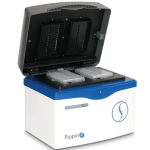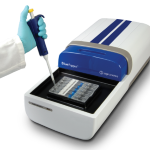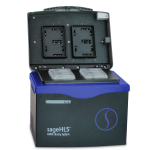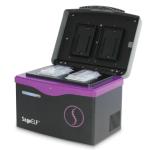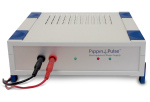May 2021
Authors:
Samuel Martin, Darren Heavens, Yuxuan Lan, Samuel Horsfield, Matthew D Clark, Richard M Leggett
Info:
Oxford Nanopore adaptive sampling is a real-time sequencing method with which analysis software identifies several hundred sequence bases as they pass through a pore and decides whether to continue sequencing. If not, the pore voltage is reversed and the associated DNA molecule is ejected. The authors suggest using this method to detect rare or non-abundant species in metagenomic studies of microbial communities. To this end, they created a synthetic mock microbial consortium with seven species, presented different proportions, and tested the method. The authors demonstrate the benefit of this approach and provide a mathematical model to test the suitability for adaptive sampling for environmental metagenomic studies.
BluePippin was used to High-Pass to size select (>15kb) the DNA from the microbial samples prior to Oxford Nanopore library construction.
Author Affiliations:
Earlham Institute, Norwich, UK
Natural History Museum, London
bioRxiv preprint
DOI: 10.1101/2021.05.07.443191
